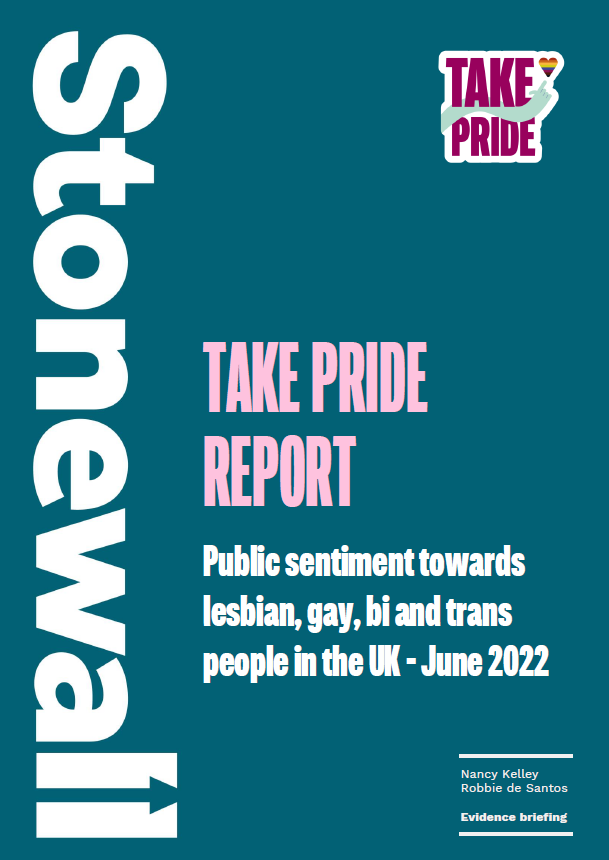Take Pride Report (2022)
This year marks the 50th anniversary of the first Pride march in the UK.
It is a time for celebrating the progress we’ve made towards a world where LGBTQ+ can be ourselves and live our lives to the full. It is also a time to take a hard look at the gap between the world we imagine for our communities and the world we’re in, where parts of our community are being left behind.
Over the last 50 years, every battle for the rights of LGBTQ+ communities has been fought in the court of public opinion as well as in the corridors of power. From the fight to decriminalise men who have sex with men, to the fight for trans people’s rights to be protected and respected, our ability to survive and thrive has always been constrained by the views of people who aren’t part of our communities.
So what does the general public think about LGBT people in the UK today? Perhaps more importantly, what do they feel?
In December 2021, Stonewall worked with Opinium to ask more than 2000 adults from across the UK how they feel about lesbian, gay, bi and trans people.
Our findings paint a picture of growing acceptance: a society beginning to truly take pride in LGBTQ+ people as neighbours, colleagues, friends and family. But the findings also show a small minority of people who are still holding on tight to the feelings of disgust and fear that drive homophobia, biphobia and transphobia. Feelings that were all too common when we first marched for our rights though London fifty years ago.
Key findings:
- One in three felt actively respectful towards lesbian, gay, bi and trans people, and one in five expressed admiration
- Less than one in ten said they felt negative feelings such as disgust or resentment
- Of that minority, a significant number (40%) of those that expressed anti-trans sentiment also said they felt the same way about all gay, lesbian and bi people
- Women are nearly eight times more likely to actively respect trans people (35%) than they are to fear them (4%)



